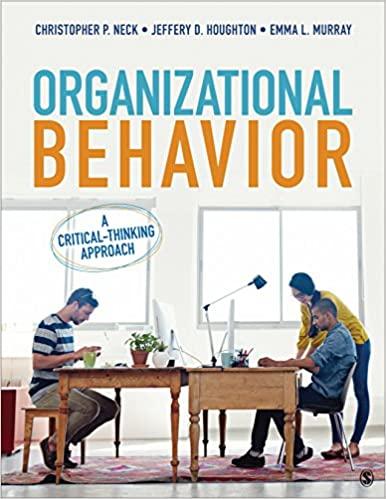When Douglas Conant took the helm as CEO of Campbell Soup Company in 2001, the iconic American
Question:
When Douglas Conant took the helm as CEO of Campbell Soup Company in 2001, the iconic American brand was in hot water. The family-owned giant founded in 1869 suffered from slowing sales, and it was losing its leadership position in its hallmark product category: soup. Conant stepped into a shareholder’s nightmare: the company’s share price had sunk from a high of $60 in 1998 to $30, layoffs were ongoing, and morale was abysmal. Yet under his leadership, the company experienced a remarkable turnaround. Conant sold off business units that didn’t make sense (like Godiva Chocolatier) and updated Campbell’s existing offerings to make them more palatable to changing consumer tastes. He improved Campbell’s diversity and inclusion practices and made Campbell’s a great place to work again. The result: sales, earnings, and market share rose nearly every year with Conant in the driver’s seat. “I can walk away proud of what we’ve done and excited about the future,” Conant said upon his departure.
Conant talked often of the idea of “winning” on two fronts: in the workplace and in the market. And Denise Morrison, his successor and longtime protégé, has continued his winning streak. Before Campbell’s, Morrison had built a reputation at companies such as Procter & Gamble, PepsiCo, Nestlé, and Nabisco; she followed her mentor from Nabisco in 2003. Before replacing him as CEO, she had worked closely with Conant as Campbell’s president of North American soup, sauces, and beverages. (Some of Campbell’s most important products, along with its ubiquitous Campbell’s Soup, include Pepperidge Farm, V8 juices, and Prego spaghetti sauce.)
Despite Morrison’s experience, sales had softened slightly around the time she took over as CEO; Campbell’s needed to continue to innovate in a rapidly changing, highly competitive market. For a company nearing its 141st birthday, that wasn’t the easiest thing to achieve. “The first thing I did,” says Morrison, “was add the value of courage to our core values. And in doing that, I encouraged people to take bolder moves and bigger risks—all with the highest integrity—but to think outside the box, to push it a little bit harder and further—always putting the consumer first. But not being afraid to fail and make mistakes; that was a very symbolic, and a very aspirational value for us.”
Morrison also recognized that the consensus-building atmosphere Conant had encouraged—which had been important for rebuilding the bruised morale of the recent past—was not conducive to speed or necessary for the nimble, innovative company Morrison envisioned. She had to “stress the importance of driving decision making.
We were a culture that spent a lot of time driving alignment, which meant we were talking to each other—and it slowed us down. And some decision making requires alignment, and some doesn’t. And so, making that determination and figuring out who has the decision . . . We trained all of our leaders on how to do that. And now we get in the room, we make decisions, and we go.”
Morrison made sure to set the tone of her leadership early on by modeling the behavior she wanted her employees to adopt. “You can’t expect your organization to behave a certain way that you’re not willing to behave.” When the company made acquisitions, she was front and center. “I spend a lot of time with the innovation teams, calling out the importance of what I call the ‘bold moves, innovation, international expansion, package fresh, and availability.’”
In February 2014, Morrison unveiled the fruits of her labor: a bold strategy that promised to deliver more than $1 billion in sales. The plan included expanding Campbell’s line of convenient Skillet and Slow Cooker Sauces, debuting Campbell’s Oven Sauces, and extending the company’s line of premium soups with products like Slow Kettle, Gourmet Bisques, and the Go! line. The hope was to woo younger shoppers along with the more affluent.
Morrison had also overseen Campbell’s 2012 acquisition of Bolthouse Farms and announced that Campbell’s would be offering Bolthouse’s all-natural smoothies at new locations such as convenience stores, drugstores, and schools. Bolthouse helps Campbell tap into the consumer demand for fresh and healthy options, as does Campbell’s own venerable juice product, V8. Bolthouse Farms salad dressings and juices would also be entering the market, Morrison announced.
Questions 1. Describe the type of leader Douglas Conant was when he became CEO of Campbell Soup Company.
2. Describe the type of empowering leadership perspective Denise Morrison used as CEO of Campbell Soup Company.
3. How did Denise Morrison utilize spiritual leadership when she wanted to see employees take bigger risks?
Step by Step Answer:

Organizational Behavior A Critical Thinking Approach
ISBN: 9781506314402
1st Edition
Authors: Christopher P. Neck, Jeffery D. Houghton, Emma L. Murray





